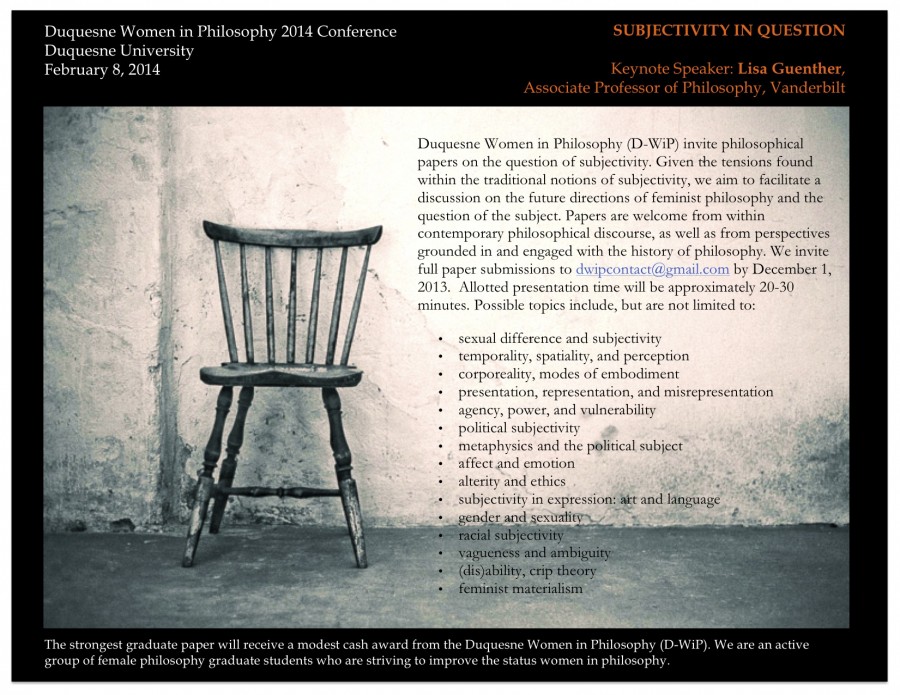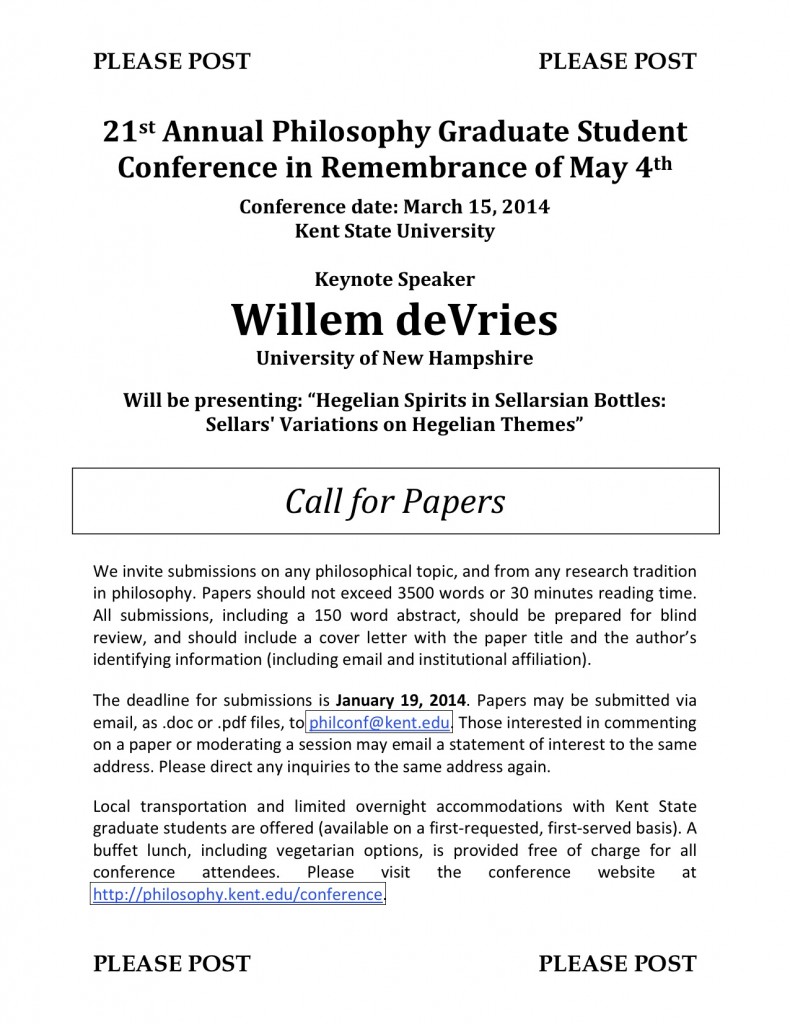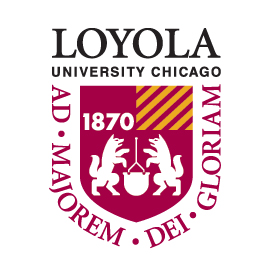“Mental Illness and Power”
A Philosophy Conference at the University of Memphis
Memphis, Tennessee
February 21-22, 2014
Deadline for proposals: November 15th, 2013
This and more information available online at: http://www.memphis.edu/philosophy/pgsa_2014.php
As much historical and theoretical work has shown, the way people have understood mental illness throughout history is co-occurrent with shifting power relations within which human beings understand themselves. Mental illness manifests itself in different ways in different contexts and certain theoretical lines can be drawn between the way mental illness is understood and the forms of power which operate on the human mind, body and understanding. Recently many issues surrounding mental illness have become prominent in public discourse. To name a few examples, the controversial publication of the DSM 5; attempts by legislators to allow mental health professionals to refuse services based on values; the investigations of the mental health of mass murderers; and the expansion of mental health coverage intended by the Affordable Care Act. These issues have all been featured prominently on the nightly news while at the same time drawing the attention of public intellectuals and politicians. With this in mind, it seems that now is an opportune moment to open a dialogue about the relationship of mental illness and power.
Philosophy provides a promising, critical, yet constructive space in which to open this dialogue. Indeed, philosophy and the mental health professions have greatly influenced one another. Some philosophers are critical of mental health practices while others use psychological insights to develop their own theoretical resources. Many psychological theories have historically been influenced by philosophers, whether John Locke, the positivists, or the existentialists. Thus, philosophers and mental health professionals have much to share with one another, especially at this moment.
The Philosophy Graduate Student Association welcomes papers from philosophers of all stripes and theoretically interested scholars in other fields, including but not limited to: clinical mental health counseling, rehabilitation counseling, psychology, psychiatry, history, literature and the arts, and political science/studies.
To Submit:
Please prepare a proposal (500-700 words in length) for blind review in either .pdf or Microsoft Word file format. Send the file as an attachment to an e-mail with a body containing the title and the author’s name, contact information, institutional affiliation and status (graduate student, faculty member, independent researcher, etc.) If accepted, final papers need to be suitable for a presentation approximately 20 minutes in length.
Proposals should be submitted to memphispgsa@gmail.com<mailto:memphispgsa@gmail.com>.
The deadline for submissions is November 15th, 2013.
This conference is sponsored by the Department of Philosophy, the Lillian and Morrie Moss Chair of Excellence, and the Philosophy Graduate Student Association at the University of Memphis.



